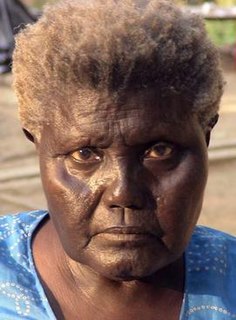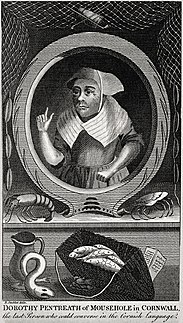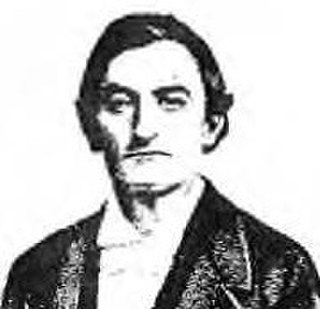 W
WTake Asai (浅井タケ) or Tahkonanna was the last fluent speaker of the Sakhalin Ainu language. She was born in Otasu village on the West coast of Sakhalin Island, and moved to Rayciska (Raichishika) during her childhood. After World War II she was relocated to Hokkaido and toward the end of her life lived in an old-age home in Monbetsu, Hidaka, Hokkaido. She served as an informant with the Piłsudski Research Project and other projects until her death in 1994.
 W
WBoa Sr was an Indian Great Andamanese elder. She was the last person fluent in the Aka-Bo language.
 W
WCristina Calderón is the last living full-blooded Yaghan person after the death of her 84 year-old sister Úrsula in 2005. By 2004, Calderón and her sister-in-law Emelinda Acuña were the only two remaining native speakers of the Yaghan language. With her granddaughter Cristina Zárraga and her sister Úrsula Calderón she published a book of Yaghan stories called Hai Kur Mamashu Shis in 2005. Zárraga, along with her husband Oliver Vogel, published Yagankuta, a dictionary and storybook of the Yaghan language, in 2010, based on interviews with Calderón.
 W
WLongevity myths are traditions about long-lived people, either as individuals or groups of people, and practices that have been believed to confer longevity, but for which scientific evidence does not support the ages claimed or the reasons for the claims. While literal interpretations of such myths may appear to indicate extraordinarily long lifespans, many scholars believe such figures may be the result of incorrect translation of numbering systems through various languages coupled with the cultural and/or symbolic significance of certain numbers.
 W
WJohn Davey or Davy (1812–1891) was a Cornish farmer who was one of the last people with some traditional knowledge of the Cornish language. According to Henry Jenner, the level of his ability in the language is unclear, but was probably restricted to a few words and phrases. A song attributed to Davey's memory, the "Cranken Rhyme", is not known from any earlier source and is notable as possibly one of the last survivals of Cornish literary tradition.
 W
WTevfik Esenç was a Circassian exile in Turkey and the last known fully competent speaker of the Ubykh language.
 W
WSage Kinvig was, at the time of her death, one of the last surviving native speakers of the Manx language.
 W
WAlexander Maksimovich Kotusov, born in 1955 in Kellog, Turukhansky District, Krasnoyarsk Krai, USSR, was a Ket singer, composer and writer of songs in the Ket language. He was also a hunter and fisherman.
 W
WThe Livonian language is a Finnic language. Although its last native speaker died in 2013, there are about 40 reported speakers and 210 having reported some knowledge of the language. The native land of the Livonian people is the Livonian Coast of the Gulf of Livonia, located in the north of the Kurzeme peninsula in Latvia. Possibly unique among the Uralic languages, Livonian has been described as a pitch-accent language.
 W
WArmand Lunel was a French writer and the last known speaker of Shuadit (Judeo-Provençal), a now-extinct Occitan language.
 W
WEdward "Ned" Maddrell was a fisherman from the Isle of Man who, at the time of his death, was the last surviving native speaker of the Manx language.
 W
WDorothy Pentreath, known as Dolly, was the last known native speaker of the Cornish language. She is also the best-known of the last fluent speakers of Cornish.
 W
WTuone Udaina was a Liburnian man who was the last person to have any active knowledge of the Dalmatian language, a Romance language that had evolved from Latin along the eastern coast of the Adriatic Sea. He was the main source of knowledge about his parents' dialect, that of the island of Veglia, for the linguist Matteo Bartoli, who recorded it in 1897.
 W
WSirenik Yupik, Sireniki Yupik, Sirenik, or Sirenikskiy is an extinct Eskimo–Aleut language. It was spoken in and around the village of Sireniki (Сиреники) in Chukotka Peninsula, Chukotka Autonomous Okrug, Russia. The language shift has been a long process, ending in total language death. In January 1997, the last native speaker of the language, a woman named Vyjye, died. Ever since that point, the language has been extinct; nowadays, all Sirenik Eskimos speak Siberian Yupik or Russian.
 W
WYelü Chucai was a Khitan statesman from the imperial clan of the Liao dynasty who became a vigorous adviser and administrator of the early Mongol Empire in the Confucian tradition. He was the first of Genghis Khan's retainers to formulate policy during the Mongol invasions and conquests, and he also introduced many administrative reforms in North China during the reign of Genghis Khan and his successor Ögedei.